Hot: #OnlineLearning #MakerSpace; On the #EdTech Horizon: #VR, #AI
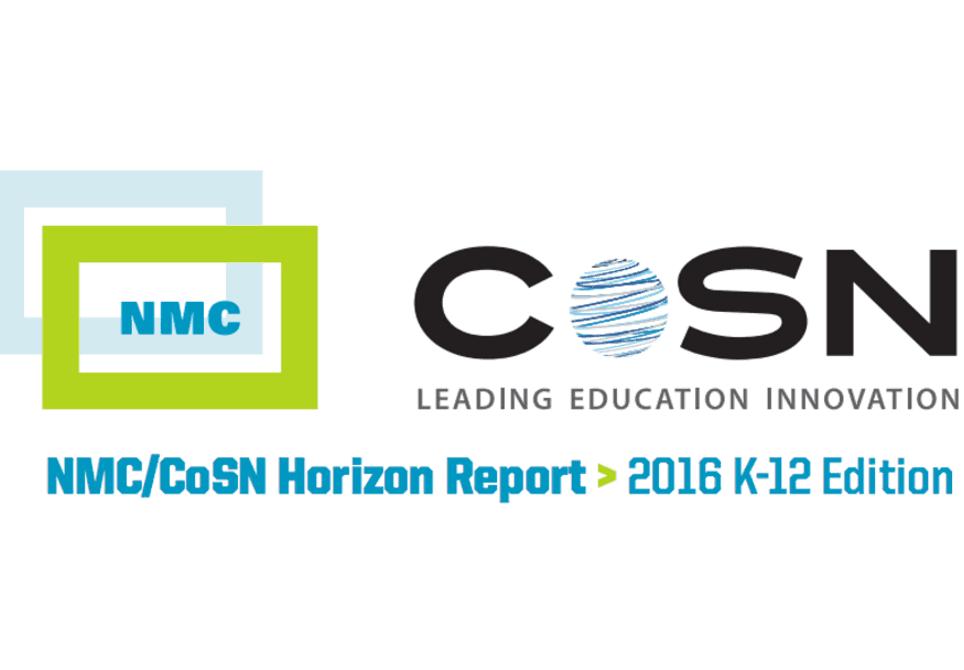
EdTech runs four or five years behind TechCrunch headlines.
Accordingly, hot topics in tech this year–AI, robotics, VR, wearables–will become widespread in education in a few years. That’s the prediction of the 2016 NMC/CoSN Horizon Report.
Here are summary findings:
Makerspaces and online learning are both expected to be widely adopted by schools in one year’s time or less to encourage students to take ownership of their education by creating and provide them with ubiquitous access to digital tools, discussion forums, rich media and more. The time to adopt for robotics and virtual reality are estimated within two to three years, while artificial intelligence and wearable technology are expected to be mainstream in schools within four to five years.
This graphic does a pretty good job summarizing the report:
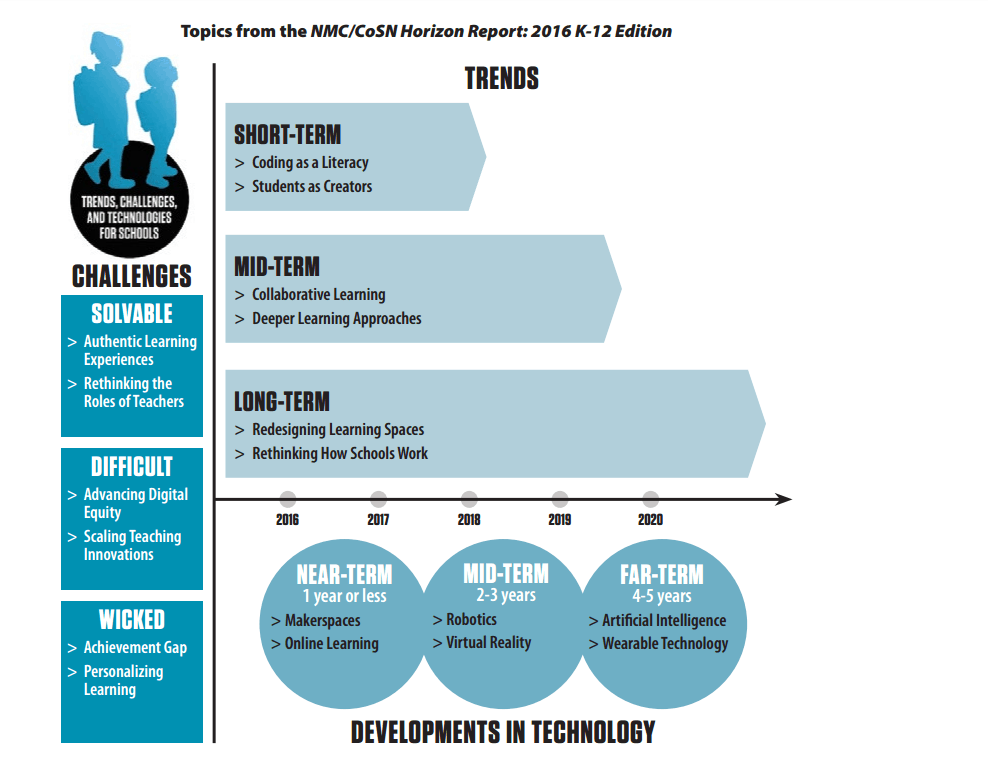
Horizon Report is published by CoSN, the association of district EdTech professionals, and the New Media Consortium.
Below is a chart showing the emerging technologies for the nine years the report has been published.


CoSN CEO Keith Krueger said that just because technologies disappear, it doesn’t mean they are no longer important. For example, cloud computing and maybe even mobile devices/learning are so ubiquitous that they no longer need to highlight those as emerging.
On the other hand, some topics like game-based learning appeared on the mid-term horizon (2010-2012) but never became a hot current trend. “It seems somewhat stalled according to our experts,” said Krueger.
The table of contents provides a great overview of the report:
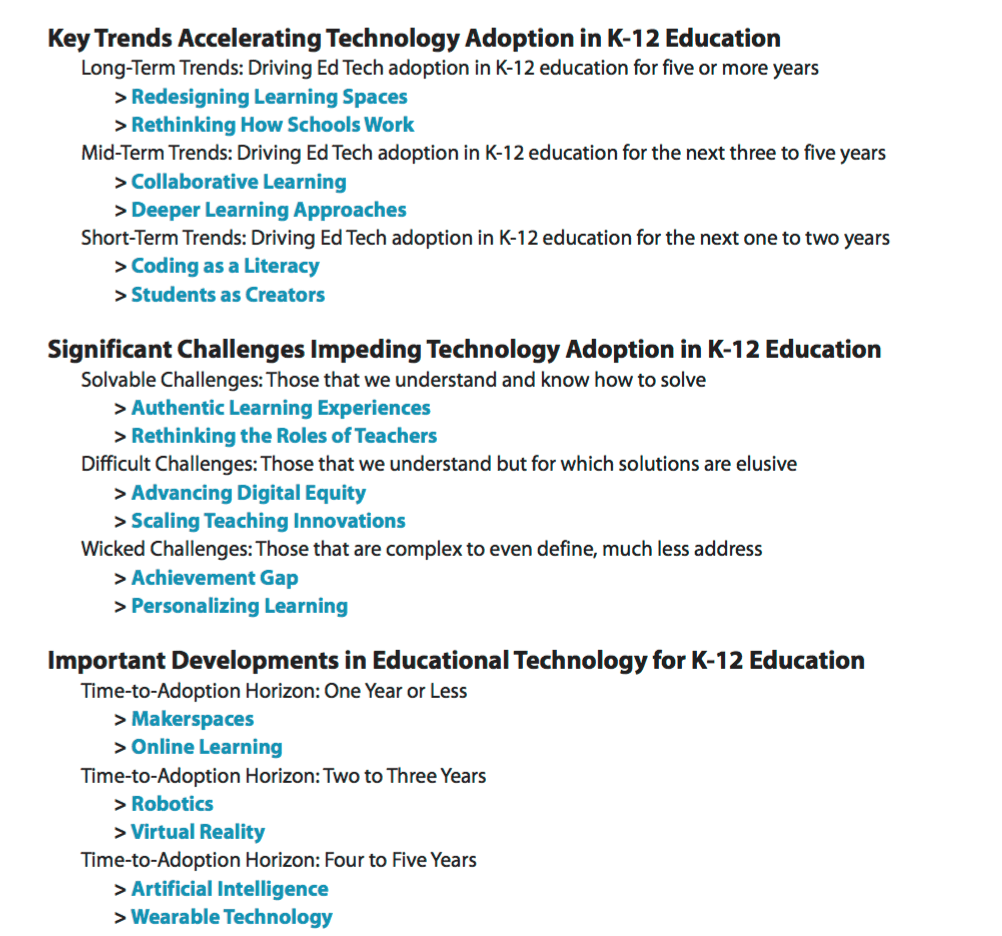
The Horizon report provides two benefits according to Krueger, “It focuses the attention for educators on what are the most important trends today in the near future, and it enables a conversation IF you start the discussion by saying what is your vision for learning.”
With the report, CoSN issued a free toolkit that includes templates, suggestions and guidelines for school and district communication.
AI on Horizon in Edu, Impacting Economy Today
For the first time, artificial intelligence made the Horizon Report. Krueger and I were excited about AI being in the report. Keith said, “It was among my favorite sections to write this year.”
As we and Pearson have, the report outlines many ways AI will improve learning: adaptive learning, recommendation engines and chatbots, smart search and image recognition. Not discussed is the ways AI is already improving district operations including bus scheduling, forecasting and hiring.
AI might be a few years from being widely used in schools, but we all use it every day. Over a two week period in August we spotted 101 current applications. The big implication is not how AI will transform learning but how learning machines are changing lives and livelihoods. It’s the single most important trend impacting education. AI is the reason collaboration and deeper learning approaches (mid-term trends) are so important.
Every repetitious task of rule application is rapidly being automated leading to great opportunity and terrible dislocation. Young people will add value by applying design and problem-solving skills to complex and novel situation in short term projects. We launched a campaign, #AskAboutAI, to encourage teachers and parents to discuss the brave new world.
The report was sponsored by Share Fair Nation who provides personalized professional learning for educators so they can prepare students to be successful in the global society. “You will see direct alignment with our mission and the professional learning necessary to bring to life the concepts and strategies the Horizon Report articulates,” said Co-CEO Carrie Morgridge. She also thanked the many volunteers and staff who dedicated countless hours to the research and development of the 2016 Horizon Report.
For more, see:
- What Learning Will Look Like in 2035
- 8 Ways Machine Learning Will Improve Education
- Machine Learning: The New Infrastructure for Everything
- Intelligence Unleashed: How Artificial Intelligence Will Improve Education
Stay in-the-know with all things EdTech and innovations in learning by signing up to receive the weekly Smart Update.




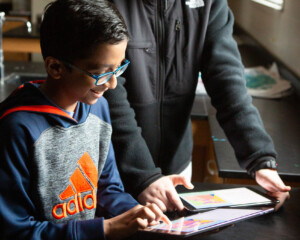

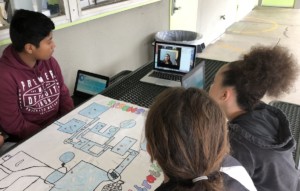
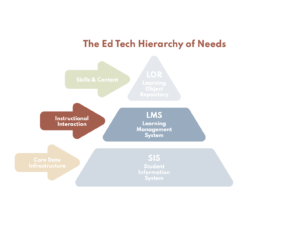
0 Comments
Leave a Comment
Your email address will not be published. All fields are required.